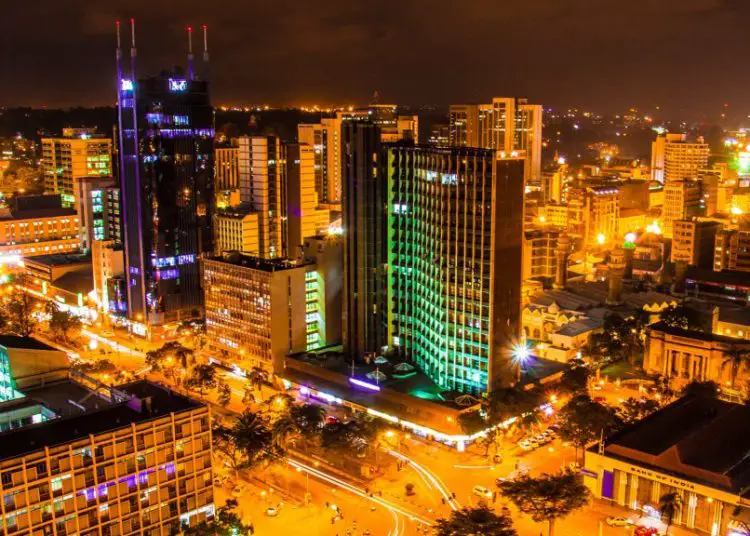- The emerging markets surpassed advanced global economies in terms of the total GDP at the beginning of the 21st century
- Emerging markets grew at an annual rate of 4.1 per cent compared to developed markets which grew at 1.5 per cent regarding the real gross domestic product
- The International Monetary Fund has designated twenty nations as emerging markets, which contribute to more than 34 per cent of the world’s nominal gross domestic product and 46 per cent of the global purchasing power parity
African countries’ economies are fast engaging with global markets, and a couple of them are jumping ship from developing to developed nations. This is evident from the increased liquidity in local debt, equity markets, volume in trade, foreign direct investment (FDI), and the domestic development of modern financial and regulatory institutions.
Countries with the fastest emerging economies in Africa are Nigeria, Egypt, South Africa, Egypt, Algeria and Morocco.
According to the Business Insights on Emerging Markets 2021, the emerging markets surpassed advanced global economies in terms of the total GDP at the beginning of the 21st century.
The report said that the emerging markets grew at an annual rate of 4.1 per cent compared to developed markets which grew at 1.5 per cent regarding the real gross domestic product.

The International Monetary Fund has designated twenty nations as emerging markets, which contribute to more than 34 per cent of the world’s nominal gross domestic product and 46 per cent of the global purchasing power parity.
Experts and global economists believe that the backbone of economic development has dramatically shifted from developed nations to emerging markets. The conclusion is that the role of foreign direct investment (FDI) in the economic development of African countries cannot be surpassed.
Many, if not all, emerging markets have relaxed the regulations and restrictions related to FDI to encourage global investors to the continent.
The Business Insights on Emerging Markets 2021 also reported that the foreign direct investment in the emerging markets jumped from 15 per cent to 46 per cent over the last two decades.
The wave of technological advancements integrated with digitalization has captivated the globe and benefited the global economy in many unexpected ways. Developing countries in Africa need to embrace the fast pace technological revolution, which shall revamp the markets in the continent.
Emerging markets have been very active in creating the digital infrastructure for technological innovations accelerated by the onset of the Coronavirus pandemic.
The internet has been the engine of the technological revolution. An increase in internet users results in enormous technological improvements in the banking, education, and e-commerce sectors, among several other areas. Nigeria, Kenya, and South Africa are countries that are driving internet adoption in the continent.
The e-commerce platforms look to dethrone traditional commercial banks and radically disrupt the commercial sector. The growth of e-commerce in Africa will give rise to a sophisticated African digital consumer. Online shopping is fast becoming a go-to alternative in buying and selling goods.
According to McKinsey’s Lions report, online shopping could account for up to US$75 million (about 10 per cent) of retail sales in Africa by 2025.
Read: Africa is one of the most promising hotel investment regions
Artificial intelligence (AI) is becoming an inevitable development, and AI is becoming a crucial pillar in the African business world. AI is effectively being integrated into all sectors from power transmission, education, health diagnosis, financial services, logistics chain, e.t.c.
A report on Artificial Intelligence in Emerging Market states that the opportunities in Artificial Intelligence will boost the Gross Domestic Product of China by 26 per cent by 2030. Looking at such projections, emerging economies crave to create their own AI agenda.
Development in these advanced industries demands a well-equipped set of human skills to keep up with the pace of the advancements in the current technological and digital era. Emerging markets are taking steps to preserve their human capital and poach high-skilled labour from another world.
The Crown Prince of Dubai, Sheikh Hamdan bin Mohammed bin Rashid Al Maktoum, has granted a 5-year multiple visa entry to employees of multinational companies, a brilliant measure to safeguard and attract human capital.
The economies of emerging markets show a gradual and radical shift from the manufacturing to the service sector.

The United Arab Emirates is promoting sustainable investment through the Dubai Expo 2020, Annual Investment Meeting (AIM), an activity that will likely propel the UAE to a few points over its present status of market agility.
Challenges derailing the adoption of these industries in Africa include demographic changes, slow economic diversification, political instability, weak financing mechanism, brain drain and abject poverty. Investment in green technology, infrastructural connectivity and liberalized reforms will put emerging markets on top of the global market.
Read: Dubai: Renewable energy bags higher FDI transcending oil, coal and gas











